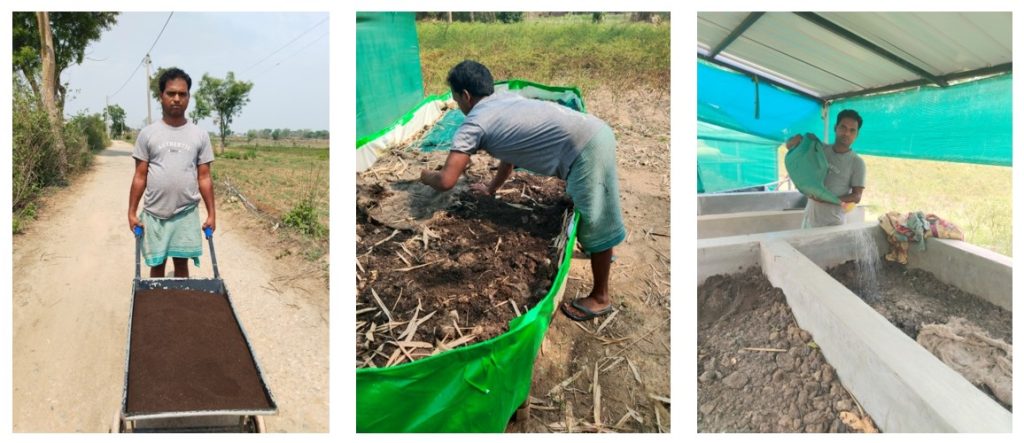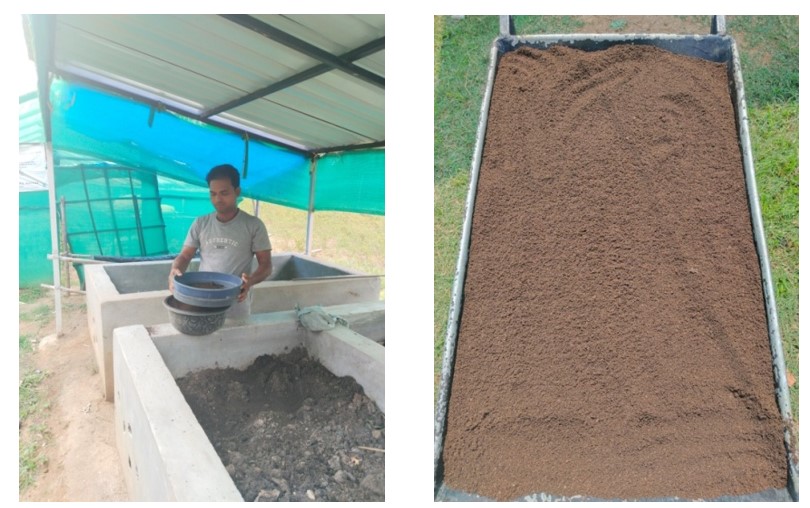Success Story
Success stories/Case studies
Success story-I
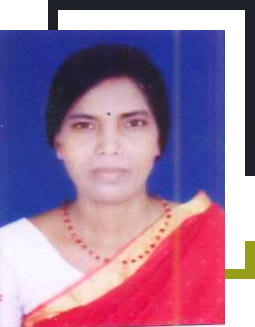
Farmer’s Name: Mrs. Laxmi Karmakar
Address: Vill:Bandhgar, P.O. Chharrah, Block-Purulia-II, Dist.-Purulia-723163 (W.B)
Mobile No.: 7602814853/ 8972332951
Name of crop: Lentil (in Rabi season)
- How and why he/she brought under CFLD?
Despite efforts towards technology development and transfer to the farmer’s fields, a majority of farmers are not able to use improved technology as they do not address their needs. Experience in different areas emphasize, the needs to organize farmers to enable them to exert pressure on Research and Extension Institutions to make technology more need based. To create a client driven Agricultural Research and Extension System, we have developed Farm Science Clubs in each of our operational villages, So that it can work as important mechanism in accelerating technology dissemination, in articulating specific Research and Extension needs and in developing technical and managerial skill of farmers who are its members. Actually the farmers whose success story is now highlighting is one of the member of our existing Farm Science Club.
- Existing practice before adopting CFLD recommendation:
Lentil seeds are sown after harvesting of Kharif paddy without following line sowing method with higher seed rate and without application of chemical fertilizer, seed treatment and bio-fertilizer.
- Details of inputs and technology provided:
Crop: Lentil
Variety- WBL-77@ 35kg./ha,Seed Treatment-Trichoderma viride @200gm/ha & Pseudomonas @300g/ha,Fertilizer-10kg N &40 kg P2O5/ha, Seed Rate: 35 Kg/ha, Bio-Fertilizer: Rhizobium @ 4 kg/ha ; PSB @ 2 Kg/ha& PMB @2kg/ha, Micro-nutrient: Zn @2 Kg/ha,Plant Protection :Bihar hairy Caterpillar(Spilarctia obliqua)-Azadirachtin 3 ml/lt,Gray mould (Botrytiscinera) -Carbendazim+ Mancozeb:2.5 gm/lt
- Details of application of technology with photograph:
| Specific characteristic | Performance | Quality photographs |
|---|---|---|
| 1. Seed Rate: WBL-77@ 35kg./ha | Uniform |  |
| 2. Seed Treatment with Trichoderma viride | Incidence of disease has been reduced upto 70-80% |  |
| 3. Fertilizer-30kg N & 100kg P2O5 ha-1, Seed Rate: 75 Kg/ha Bio-Fertilizer:Rhizobium @ 2 kg/ha & PSB @ 2 Kg/ha, Micronutrient: Zn @25 Kg/ha |
Yield has been increased in compare with local check. |
- Field day observed:

- Results: Local check, Demo with B:C Ratio
| Sl.
No.
|
Variety demonstrated & Technology demonstrated
|
Yield (q/ha) | Farmer’s Existing plot | Demonstration plot
|
Farmers Feedback | ||||||||
|---|---|---|---|---|---|---|---|---|---|---|---|---|---|
| Local check | Demo | % of increase | Gross Cost
(Rs/ha) |
Gross return
(Rs/ha) |
Net Return
(Rs/ha) |
B:C
ratio |
Gross Cost
(Rs/ha) |
Gross return
(Rs/ha) |
Net Return
(Rs/ha) |
B:C
ratio |
|||
| 1. | Crop: Lentil
Variety- WBL-77@ 35kg./ha,Seed Treatment-Trichoderma viride @200gm/ha & Pseudomonas obliqua)-Azadirachtin 3 ml/lt,Gray mould (Botrytiscinera) -Carbendazim+ Mancozeb:2.5 gm/lt |
6.70 | 11.8 | 88.8 | 18050 | 35800 | 17750 | 1.98 | 25700 | 61700 | 36000 | 2.4 | Introduction of varieties for late-planting condition and selection of varieties that should performed well in poor management condition. |
- Feedback in scientific term:
Farmers Feedback: Introduction of varieties for late-planting condition and selection of varieties that should performed well in poor management condition.
Scientist Feedback: Introduction of varieties for late-planting condition and selection of varieties that should performed well in poor management condition.
Success story-II
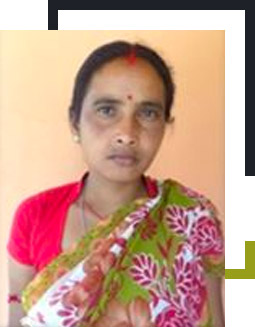
Farmer’s Name: Dipali Mahato
Address: Village – Podlara, Post: Chharra, P.S: Purulia-II, Dist: Purulia, Pin: 723163, West Bengal
Name of crop: Mustard
(Year & Season : Rabi 2017-18)
- How and why she brought under CFLD?
How? –
We initially called a Meeting at KVK involving our Village Level Extension Functionaries (Secretary and office bearers of village level Registered Youth Organisation) to discuss the objectives and modalities of implementing CFLD in our Operational area.
- Then Club Secretaries called a meeting in their respective villages involving potential farmers of their locality to discuss the objectives and modalities of implementing CFLD and came out with a probable list of farmers.
- Then a Team comprising KVK functionaries visit those farmers field to have a on spot verification of the demonstration to guess the suitability of the plot for taking up CFLD programme like- its location, soil, distance from village, proximity to irrigation sources etc.
- Made a clear cut discussion with the farmer about What KVK will provide apart from technical knowledge as Critical input and what he has to arrange for fulfilling our objectives.
- On the basis of a positive outcome a farmer has been picked up for CFLD.
Why?-
- She owned a land area of about 2 acre where he/she is growing Mustard for the last 3yrs. using locally available seed and traditional knowhow.
- The demonstration plot is located just beside the main approach road of the village that passes through the village to another neighbouring village.
- She is willing to cultivate Mustard as per our direction in 1 Acre land keeping rest portion to sow the same crop as usual to have a comparative experience.
- She has irrigation facility to provide at least 5 irrigations.
- She is capable of arranging all physical and financial requirements, like timely land preparation, sowing, weeding, fertilization, irrigation etc.
- Existing practice before adopting CFLD recommendation:
Sowing in the month of December
- Broadcasting seeds in dry beds followed by flooding that result in irregular and poor stand establishment.
- Locally available B-9 used.
- No seed treatment or Coating with Bio- Fertilizer.
- Seed rate 7.5 Kg./ha.
- Basal application of 5 kg. DAP only/ha
- No Micronutrient application.
- Top dressing with 5 kg Urea/ha any time depending on discolouration.
- No thinning.
- Irrigation by flooding the field.
- Details of inputs and technology provided:
| Technology Provided | Inputs given |
|---|---|
| Sowing with in 15 th Nov. | |
| Pre sowing irrigation instead of post sown flooding. | |
| Variety- PAN -70 (Hybride) | SEED |
| Seed Rate- 5 kg/ha | |
| Seed treatment seven (7) days prior sowing | Trichoderma Viride @100gm/ha & Pseudomonas@100g/ha |
| Seed coating with Bio-Fertilizer day before sowing | PSB @ 2 Kg/ha & PMB @4kg/ha |
| Soil application of Micronutrient | Zn @ 8 Kg/ha &Mn @ 8 kg/ha |
| Basal application of chemical fertilizer @ 30kg N ,30 kg P2O5&30 Kg K2O / ha |
|
| Weeding and thinning followed by top dressing with N@ 30kg at 21 DAS | |
| Plant protection measures as and when required |
- Details of application of technology with photograph:
- Sowing with in 15 th Nov.
- Pre sowing irrigation instead of post sown flooding.
- Variety- PAN -70 (Hybrid)
- Seed Rate- 5 kg/ha
- Seed treatment seven (7) days prior sowing with Trichoderma Viride @100gm/ha & Pseudomonas@100g/ha
- Seed coating with Bio-Fertilizer day before sowing with PSB @ 2 Kg/ha & PMB @4kg/ha
- Soil application of Micronutrient: Zn @ 8 Kg/ha &Mn @ 8 kg/ha
- Basal application of chemical fertilizer @ 30kg N ,30 kg P2O5&30 Kg K2O / ha
- Weeding and thinning followed by top dressing with N@ 30kg at 21 DAS
- Plant protection measures as and when required

- Field day observed:
| Sl. No. | Extension Activities organized | Date of activity | Number of farmer attended |
|---|---|---|---|
| 1. | Field Day on Mustard | 24.2.2018 | 52 |
| 2. | Field Day on Mustard | 05.3.2018 | 50 |
- Results: Local check, Demo with B:C Ratio
| Crop demonstrated | Yield (q/ha) | Farmer’s Existing plot | Demonstration plot | |||||||
|---|---|---|---|---|---|---|---|---|---|---|
| Local Check | Demo | Gross Cost (Rs/ha) | Gross return (Rs/ha) | Net Return (Rs/ha) | B:C ratio | Gross Cost (Rs/ha) | Gross return (Rs/ha) | Net Return (Rs/ha) | B:C ratio | |
| Rapeseed Mustard | 9.25 | 14.85 | 19,500.00 | 32,375.00 | 12,875.00 | 1.66 | 22,700.00 | 51,975.00 | 29,275.00 | 2.28 |
- Feedback in scientific term:
- We have to explore the suitability of introducing much higher yielder Hybrids instead of available HYVs.
- Varieties of 100 +_ 10 days variety.
- Explore the possibility of sowing mustard using Zero Seed-cum-Fertiliser Drill to ensure timely sowing.
- Powdery mildew resistant varieties suitable for late sown crops.
Success story-III
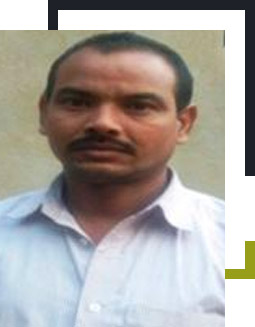
Name of the farmer: Mr. Sanjoy Char
Village: Madhubanpur,
PO- Muradi, Block- Santuri, PIN- 723156, Dist.- Purulia, West Bengal
Mob.: +91 977536948
| Name of the farmer | Mr. Sanjoy Char
Village: Madhubanpur, PO- Muradi, Block- Santuri, PIN- 723156, Dist.- Purulia, West Bengal Mob.: +91 977536948 |
|
| Education | 10th | |
| Landholding (in acre) | 4 acres | |
| Irrigated (in acre) | 1 acre | |
| Un-irrigated (in acre) | 3 acres | |
| Membership details (in Self-Help Group, Producers
Cooperative/ Company, Cooperative Society etc.) |
Member of SHG | |
| Family size (Number) | 06 nos. (Parent-01, Brother-01, Sister in Law- 01, Nephew- 01, Wife-01 and Self) |
|
| Agricultural and non-agricultural activities of the family | Vegetable Cultivation (Tomato, Cabbage, Cauliflower, Brinjal)- 01 acre, Kharif Paddy- 02 acre Mustard- 01 acre Dairy- 12 nos. Cattle Feed Unit Shop- 01 no. |
|
| Source of income of the family | Vegetable Cultivation (Tomato, Cabbage, Cauliflower, Brinjal)- 55000.00 Kharif Paddy- Rs. 12000.00 Mustard-Rs. 7000.00 Dairy- Rs. 2.5 lakhs Cattle Feed Unit Shop- Rs. 2.0 lakhs. |
|
| Daily family expenses for food purpose | Rs. 300.00 | |
| Monthly expenses other than food cost | Rs. 30000.00 | |
| Background before intervention (not more than 150 words) | Purulia district of West Bengal is a forest intensive district where 65% of total geographical area is under upland considering unbunded and bunded situation where cattle rearing comes under extensive system of management. Dairy cooperatives already exist in this area. This area is surrounded with Bokaro and Asansol City with regular transport facility like rail and bus. |
|
| Brief description of technical interventions and justification including innovation, if any (not more than 150 words) |
Mr. Sanjoy Char started Dairy farming in the year 2012 with 04 nos. of Jebu Cattle and 01 no. of Cross Breed Jersey cow. However, he experienced huge loss that year due to the lack of scientific dairy farming. Low Milk production due to attack of Foot and Mouth disease along with less interest on scientific feed formulation as well as fodder cultivation. In the mean time Krishi Vigyan Kendra Kalyan, Purulia has played an important role in identifying Mr. Char as a challenging farmer. The then KVK experts heard his problems. After detailed investigation, they advised him to follow the scientific dairy farming technique and management strategy of vaccination and de-worming technique, low cost feed formulation using available local ingredients, organic fodder cultivation, silage preparation and insurance policy of cattle. Since then he followed scientific dairy farming technique. Presently, he is rearing 12 no. of Cross Breed Jersey cow with yearly net income of Rs. 2.5 lakhs. Recently he also established a cattle feed shop with net income of Rs. 2.0 lakhs per year. He learned by doing and now become a master trainer and he is extending training to the novices through teaching by doing. |
|
| Source of technology/ reference | KVK Kalyan, Purulia | |
| Source of fund/ financial supports | NABARD, Purulia | |
| Technological benefits after intervention | ü Hygienic Dairy Farm Management
ü Vaccination and de-worming technique ü Low cost feed formulation ü Organic fodder cultivation ü Silage preparation ü Urea Feeding ü Insurance Policy of Cattle |
|
| Awards / rewards / appreciation received | 04 nos. at Block Level and Sub Division Level (Calf & Cattle Show) |
|
| Role of KVK in intervention | ü Hands on Training
ü Demonstration ü On Farm Trial/ Testing ü Exposure Visit |
|
| Impact factor | Before Adoption | After Adoption |
| Farmer Practice | Lesser Knowledge about Scientific Dairy Farming |
Increased Knowledge attitude & Skill on Vaccination, De-worming, |
| Yield of Product | 10 litre per day | 80 litres per day |
| Fixed Cost | Rs. 0.5 lakhs | Rs. 2.0 lakhs |
| Recurring Cost | Rs. 0.7 lakhs | Rs. 3.0 lakhs |
| Gross Income | Rs. 1.2 lakhs | Rs. 7.5 lakhs |
| Net Profit | Rs. 0.5 lakhs | Rs. 2.5 lakhs |
| B:C Ratio | 1.71:1 | 2.5:1 |
| Marketing | Own consumption and selling within the village | Own consumption and supply to the nearby cities like Bokaro, Asansol, etc. |
| Dissemination of knowledge in the locality | less | Recognized as a Progressive Dairy Farmer |
| Knowledge gain based on 1- 5 scale* | 1 | 4 |
| Feeling of economic security based on 1- 5 scale* | 1 | 4 |
| Ability to understand and solve problems based on 1- 5 scale* | 1 | 3.5 |
| Self image in community based on 1- 5 scale* | 1 | 3.5 |
| Self confidence based on 1- 5 scale* | 3 | 4.2 |
Success story-IV
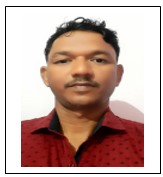
Beneficiary at a Glance:
| Name | Sri Ajanta Singh Deo |
| Age | 37 (25.10.1985) |
| Contact No | |
| Educational Qualification | B. Sc (Pure Science) |
| Occupation | Business |
| Farm Size | 3 acre |
| Family Size | 07 |
| No. of Earning Members in family | 01 (Self) |
| Village | Babugram |
| Block | Raghunathpur- I |
| District | Purulia |
| PIN | 723133 |
| State | West Bengal |
Association with KVK Kalyan:
Sri Ajanta Singh Deo is a dynamic youth of 38 years age from Raghunathpur-I Block of Purulia district having joint family of seven members and he is the only earning member. He is not from farming background but he was keen to learn about new horticultural techniques and therefore he visited Krishi Vigyan Kendra, Kalyan during July, 2016. Dr. Chinanshuk Ghosh, SMS (Horticulture) interacted with Sri. Deo and found that he was hungry to learn and implement the new technologies developed by different ICAR Institutes and which are feasible in the red lateritic zone of Purulia District. Thus the association of Sri Deo with KVK Kalyan started with implementation of 2 horticultural OFT’s in his 3 acre farm which was then underdeveloped. Later he started visiting KVK Kalyan on regular basis to develop his land suitable for cultivation of different vegetables. Then he was introduced with Dr. Bisweswar Mahato, SMS (Soil Science), who interacted with Sri. Deo and was provided information how to upgrade the land which was basically barren for years. He was asked to bring soil sample for testing so that the correct nutrient status can be provided to him before cultivation of different vegetable crops.
Hurdles faced during farming:
After few months of hard work and regular visit of KVK officials he started cultivation in rabi season of 2016. His first two crops failed due unknown variety selection of locally available seedlings purchased by him and least application of organic manures against our recommendation in the field. He was then asked to attend the 3 days training programme conducted by KVK Kalyan on “Scientific Nursery Raising of Vegetable Crops” during May, 2017. Dr. Chinanshuk Ghosh, SMS (Horticulture) was the course coordinator of the said programme where he delivered informative lectures as well as conducted hands on training to the participants. He emphasized the need of nursery raising in context to Purulia district along with selection of variety suitable for this district, good quality seeds from ICAR research institutes and reputed private companies. Participants prepared pore tray mixture for good germination and healthy growth of seedlings during hands on training by Dr. Ghosh. He mentioned the mixture ratio, time of liquid fertilizer application and use of plant protection chemicals during nursery raising. After successful completion of training programme Sri. Deo stated that the training programme was an eye opener to him as he earlier assumed that nursery raising is very simple task. He also stated that nursery raising can be made simple if we follow the scientific procedures which will result to minimum seedling loss and getting healthy seedlings.
Seeing is learning:
Immediately after completion of training programme Sri. Deo started nursery raising of vegetable crops for his own field with regular suggestion from KVK Kalyan officials. In the due course of time he expertise himself in this area and started selling extra seedlings to the nearby villages. By the end of 2019 he was a well known seedling supplier in the nearby blocks of Purlia such as Para, Raghunath-II, Santuri & Neturia. In the mean while he visited Hatuara village of Purulia-II Block & Gokulnagar village of Barabazar Block where we established our first phase Low cost Poly house under ARYA- Nursery Raising project sponsored by ICAR ATARI Kolkata in the year 2018-19. After visiting these two places he was surprised to see the growth of healthy seedlings inside the low cost poly house. He started querying us about the structures and technology and schemes very often over telephone or by visiting KVK Kalyan, Purulia
Selection as Beneficiary in ARYA- Nursery Raising project:
Sri. Deo faced many weather hazards such as high temperature, sudden rainfall and natural calamities which directly affected his nursery raising venture. He again visited and contacted KVK Kalyan regarding information on protected structures which he thought would be directly beneficial for nursery raising. In the year 2020 he was again asked to participate in the training on Nursery raising of Vegetable Crops under the umbrella of ARYA Projected. In the said training programme he came to known about the detailed information about ARYA Project as described by Dr. Chinanshuk Ghosh, SMS (Horticulture). In this 6 days training programme he gathered knowledge about Protected Structures, efficient use of water which is scarce in this district, how to operate micro- irrigation system, use of sprinkler & fogger, why should we use HDPE poly sheet & shade net, etc. Since we knew that Sri. Deo is hard working and dedicated to his work, we selected him as ARYA- Nursery Raising beneficiary for the year 2021-22. We visited his farm again and selected the site for establishment of Low Cost Poly house. His Poly house was established in June, 2021 along with inverted drip system with 0.5 HP pump. For startup he was provided iron structure table, pore-trays, 16 litre sprayer, sieve, seeds and plant protection chemicals.
Way towards economical smile:
After having his own Low Cost Poly house he is now able to raise much more seedlings round the year. He also cultivates Coriander, Spinach and Mint inside the poly house during off season (rainy season) to get high income. His seedlings demand is now in peak and often unable to fulfill the requirement. Customers from Asansol and nearby villages/ blocks directly visit his farm to purchase seedlings and farm fresh produce.
Opportunity from Govt. schemes:
KVK Kalyan officials introduced him to the Agriculture Department, Purulia, Govt. of WB & Horticulture Department, Purulia, Govt. of WB to provide him extended support towards up gradation of his farm by providing him different schemes. As soon as he was introduced, Office of Asst. Director of Agriculture, Raghunathpur-I Block visited his farm and asked him to apply for micro- irrigation system scheme which was very soon implemented in his 3 acre farm. He was provided with poly mulch for round the year vegetable cultivation. Dr. Ghosh visited his farm after installation of micro irrigation system and asked him to cultivate his crops using staking and trellising to get higher yield and better quality of produce. By his own expense he has excavated a pond and applied for pond lining scheme to the Horticulture Dept, Purulia after getting information from Dr. Ghosh.
Linkage with Marketing channels:
Sri. Deo is also introduced to local private buyers such as Reliance Fresh and Spencers as a part of market linkage who buys the products and transport to Purulia, Asansol, Durgapur, Bokaro & Ranchi. He is now thinking to market his products through branding.
Employment generation:
He has generated 12 nos. of skilled persons by employment in his farm round the year. He is in regular touch with the village people through local club. He is also motivating the youths of nearby villages to start nursery raising & construct low cost poly and also the visitors who directly come to meet him.
Entrepreneurship development:
His Low Cost Poly House along with Farm is now a model farm identified in the district level. Farmers as well Govt. officials from different blocks of Purulia and nearby districts are visiting on regular basis. After visiting his place many youths and farmers of the nearby villages and blocks have started nursery raising in scientific manner. Many youths have also submitted their application to undergo training programme at KVK Kalyan, Purulia.
Future Endeavour’s:
His future plan is to extend his farm by establishing one high tech permanent protected structure where he can grow off season high value vegetables and cut flowers through linkage with banking institution in the next financial year. In the present year he is going to register one Farmers Producer Company.
Economics of Farm (Yearly net profit):
| Year | Seedlings
(Amount in Rs.) |
Farm Produce
(Amount in Rs.) |
Total Amount
(Rs.) |
| Before Implementation of ARYA Project | |||
| 2016-17 | – | 2631.00 | 2631.00 |
| 2017-18 | 3250.00 | 8972.00 | 12222.00 |
| 2018-19 | 5655.00 | 11895.00 | 17550.00 |
| 2019-20 | 8975.00 | 15654.00 | 24629.00 |
| 2020-21 | 17858.00 | 22564.00 | 40422.00 |
| After Implementation of ARYA Project | |||
| 2021-22 | 99565.00 | 156980.00 | 256545.00 |
| 2022-23 | 112785.00 | 225600.00 | 338385.00 |
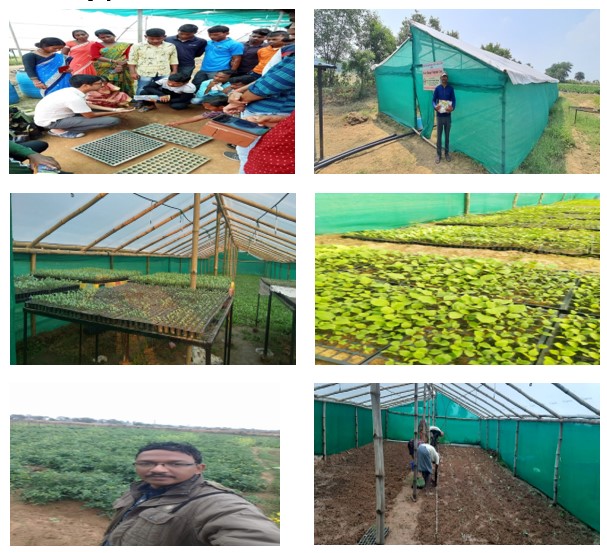
Success story-V
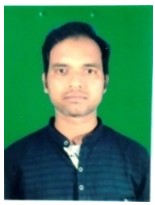
Brief about the entrepreneur:
Name: Sri Jatindra Nath Kuiri, Address: Village: Durgu, Post. : Pusti,
Block – Jhalda-I, District. – Purulia, State – West Bengal, Gender : Male,
Age: , Contact Number: 9933418577, Educational Qualification: Higher Secondary (10+2), Occupation – Farmer, Family size : 09 members,
No. of earning members in family: 02, Land holdings: 0.65 ha
Introduction in ARYA project – How and When?
We have conducted an off-campus meeting on beneficiary selection under ARYA programme at village level and rural youths were present from different villages. Rural youths those who were present in this discussion they all are engaged with their own farm activity. Then some youths were interested to know the details about ARYA project. Among them three youths were visited our previous Vermicompost production unit under ARYA programme and they discussed details regarding ARYA project with the beneficiary. After that they came to KVK and after knowing details of this project one youth among them were very much interested to do Vermicompost production units as a profession in his own farm.
Reason for induction of the youth in ARYA project
He was engaged with farming in his own farm from the last few years with his father after completion of his higher secondary. He was very much interested on organic farming practices due to the high cost of chemical fertilizer and sometimes unavailability. It was well known to him that he was not applying inorganic fertilizers in judicious manner so, the soil health is declining day by day. His area is totally depends on farming mainly vegetable cultivation throughout the year. Last few years, due to unavailability and high cost of FYM, they were practicing with different type of composts by using his own/nearby farm wastes throughout the year. After knowing the advantages of Vermicompost he was very much interested to establish this project because he surveyed all the nearby village farmers regarding marketing of Vermicompost and gets very good responses from them. He has all the required resources in his own farm. Then he decided to make an entrepreneurship by himself to generate more income through Vermicompost production and selling. He has very good knowledge about marketing because he deals everyday with his farm products.
Initial phase of enterprise development
After knowing his background we select him as a beneficiary of Vermicompost production enterprise under ARYA programme. He participated in seven days residential hands on training programme and it was conducted at KVK, Kalyan campus on vermicompost production technology and area covered in this training e.g., (Site selection of vermin compost unit, availability of resources in locality, what type of Worms to be used in vermicompost and their characteristics and inoculation methods, how to maintain moisture and temperature, how and when turnings to be done, watering methods, characteristics of matured products, sieving methods, how to store, application rates, nutrients present in vermicompost, what is vermiwash, benefits of vermiwash and Application methods).
Initially KVK supported through ARYA project by Permanent structure of vermibed with shed (6ft x 3ft. x 2.5 ft = 3 numbers and one rhino bed with 6ft x 4ft. x 2 ft = 1 pc.), earthworms, watering can, gunny bag, trolley for carrying cow dung as well as storing of final product, weighing balance for how much products produced and finally to get B:C ratio.
With the help of KVK personel he developed good linkages with the Line departments, Forest Departments, Local nursery, Local Input Dealers for selling his final product as well as worms also. He also sells his product in the local haats with his farm fresh products. After getting more demands from govt. offices, local farmers, nursery growers and input dealers he was decided to expand his unit and he invest from his own fund and purchased four more rhino beds and installed in his farm without any delay.
Journey of entrepreneurship: With his own interest he contact with KVK for getting idea/technical support about Vermicompost preparation. After getting all the informations he was willing to start Vermicompost production then KVK supplied one Rhino bed and he initially started Vermicompost production for application in his own farm for vegetable cultivation and he started selling the excess quantity. Day by day the number of customers continued to grow then he decided to make this as commercial production for a profitable business and to fulfill the demands from farmers. Then he again contact with KVK and interest shown on Vermicompost production and we select him as a beneficiary of Vermicompost production enterprise under ARYA programme. After learning the technology, he thought of adopting it as an enterprise. He always think about organic farming for sustainable agriculture and it is the need of the coming years.
He is now practicing with 3 nos. of permanent vermin bed and 4 nos. of rhino bed throughout the year and also generating man days for smooth running of the Vermicompost unit. The area is totally depends on seasonal vegetable cultivation round the year and as per the demand from local farmers, Govt. offices and other running customers he could not fulfilled all the demands, so, he decided to engage more youths in Vermicompost production of his village to fulfill the demands and also minimize the migration. His family members are always with him and participate in all the activities since raw material collection to harvesting. Initially he faced some problems about selling of final products as well as worms. Now he made a good marketing channel in locally from his own level.
Role of KVK in marketing and additional resource generation
Initially KVK has linked with the Govt. offices, NGO’s, Private organizations, Local nursery growers and input dealers of his block to sell his quality product. Many farmers of his area are in contact with us for purchasing of Vermicompost, now shifted them in his vermi-composting unit to purchase Vermicompost, vermiwash and also worms for beginners. He is now trying to establish a Vermicompost producer group in his area for bulk selling. The adoptation of Vermicompost helps in involving minimum use of external inputs, crop residue recycling and organic practices can improve economic and ecological issues.
- Fallout of ARYA project
| Year | Production (q) | Cost of Production (Rs.) | Gross Return (Rs.) | Net Return (Rs.) |
| 2022-23 | vermicompost 62.25 q.
Worms 30500 nos. |
32,050.00 | 93375.00 + 30500.00 = 1,23,875.00 | 91,825.00 |
Once, it was difficult for Mr. Kuiri to manage his family and other expenses, but today he is one of the successful farmer entrepreneurs of Jhalda Block in Purulia District. With the help of KVK, Shri Kuiri has been promoted as one of the key farmers of Jhalda-I block in Purulia district. His success influence other farmers, farm innovator and migrant labours to get interested and adopted Vermicompost unit as an enterprise. He became a role model for successful running of Vermicompost producer in the district of Purulia.
Future Plan/vision for the startup:
Taking his success to another level, Mr. Kuiri comes up with an innovative vermicompost business plan which starts with branding the product as early as possible. Mr. Kuiri wants to expand his business further and plans to open 6-8 more vermicompost units in the next two to three years. He is the only vermicompost entrepreneur from Jhalda-I block of Purulia District.
